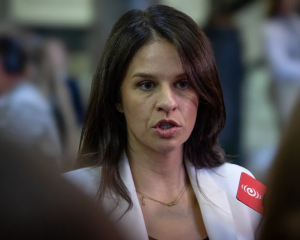Minimum wage workers are worse off now than a year ago despite the Government's tax changes, Labour says.
Labour MP Darien Fenton said Parliamentary Library calculations, on the change in the real full-time minimum wage since June last year, showed that a minimum wage worker was actually worse off than a year ago.
The Government said its tax switch compensated minimum wage earners but that was not true, even for the individual example it had used, she said.
"Once inflation is taken into account, then 'Sam', the minimum wage worker used as an example by the Government to justify last year's tax switch, has now seen his supposed $6.30 a week October 1 income increase completely eroded, despite factoring in April's small minimum wage increase.
She challenged Labour Minister Kate Wilkinson in Parliament on the findings.
"Does she stand by her assertion that the 25c minimum wage increase from 1 April this year will maintain the real value of the minimum wage when, in fact, half of that increase was wiped out in the first three months?" she asked.
Ms Wilkinson said the increase was linked to the consumer price index at the time.
"It is a matter of striking a balance between what is fair to employees - but not pricing them out of a job - and giving employers the incentives and the encouragement to actually take on more employees."
Ms Fenton said that in real terms, the minimum wage had decreased by $16.80 a week since June last year.
But the minister said the after tax average wage had increased 7.4 percent.
"Which, after taking inflation into account, is a net increase of 2.1 percent."
Asked about the Parliamentary Library calculations, Ms Wilkinson said times were challenging.
"But we would rather have workers in jobs than sacrificing them by increasing the minimum wage to an unsustainable and unrealistic level."
Ms Fenton said a $7 difference between New Zealand's and Australia's minimum wage was driving people across the Tasman.
Labour want the minimum wage raised to $15 an hour.











